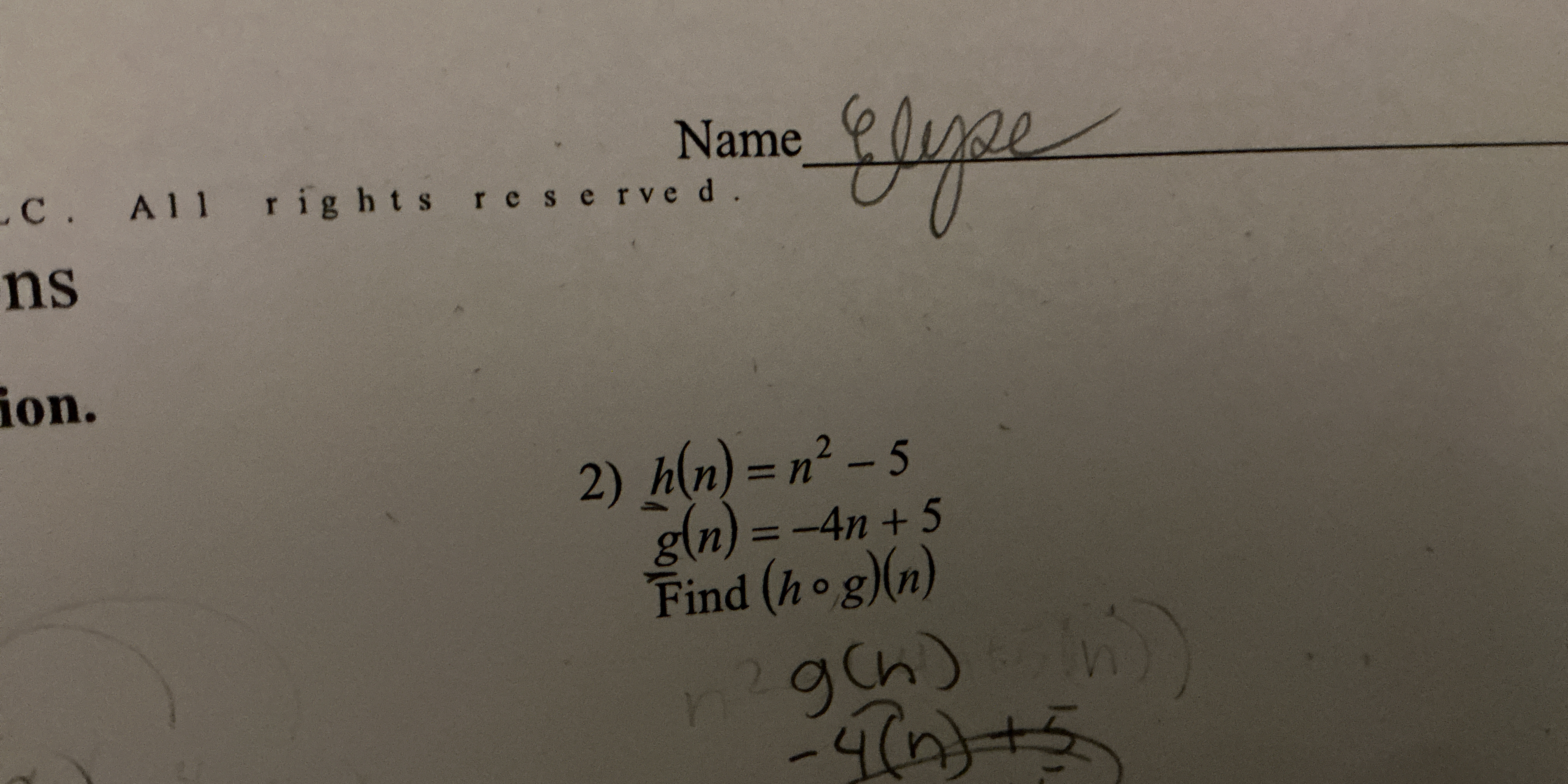h(n) = n^2 - 5, g(n) = -4n + 5. Find (h ∘ g)(n).

Understand the Problem
The question is asking for the composition of two functions, h(n) and g(n), specifically to find (h ∘ g)(n). This requires substituting g(n) into h(n).
Answer
$16n^2 - 40n + 20$
Answer for screen readers
The composition of the functions is: $$(h \circ g)(n) = 16n^2 - 40n + 20$$
Steps to Solve
- Identify the Functions We have two functions:
- $h(n) = n^2 - 5$
- $g(n) = -4n + 5$
-
Find g(n) Let's first express ( g(n) ): $$ g(n) = -4n + 5 $$
-
Substitute g(n) into h(n) Now, we need to substitute ( g(n) ) into ( h(n) ): $$ (h \circ g)(n) = h(g(n)) = h(-4n + 5) $$
-
Calculate h(g(n)) Now substitute ( -4n + 5 ) into the function ( h(n) ): $$ h(-4n + 5) = (-4n + 5)^2 - 5 $$
-
Expand the Squared Expression Now, we can expand ( (-4n + 5)^2 ): $$ (-4n + 5)^2 = 16n^2 - 40n + 25 $$ So, $$ h(-4n + 5) = 16n^2 - 40n + 25 - 5 $$
-
Combine Like Terms Finally, combine the constants: $$ h(-4n + 5) = 16n^2 - 40n + 20 $$
The composition of the functions is: $$(h \circ g)(n) = 16n^2 - 40n + 20$$
More Information
This composition reflects how the transformation from ( g(n) ) modifies the input for ( h(n) ). Function composition is commonly used to combine multiple operations into one.
Tips
- Forgetting to Substitute Correctly: Always ensure that you substitute the output of ( g(n) ) into ( h(n) ) correctly.
- Not Expanding the Square: When expanding ( (a + b)^2 ), it's important to remember it equals ( a^2 + 2ab + b^2 ).
- Sign Errors: Pay close attention to signs during substitution and expansion.
AI-generated content may contain errors. Please verify critical information